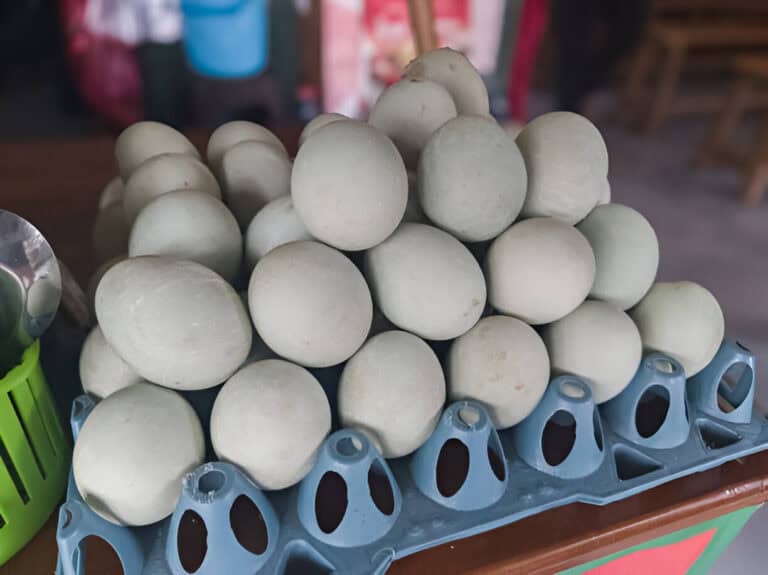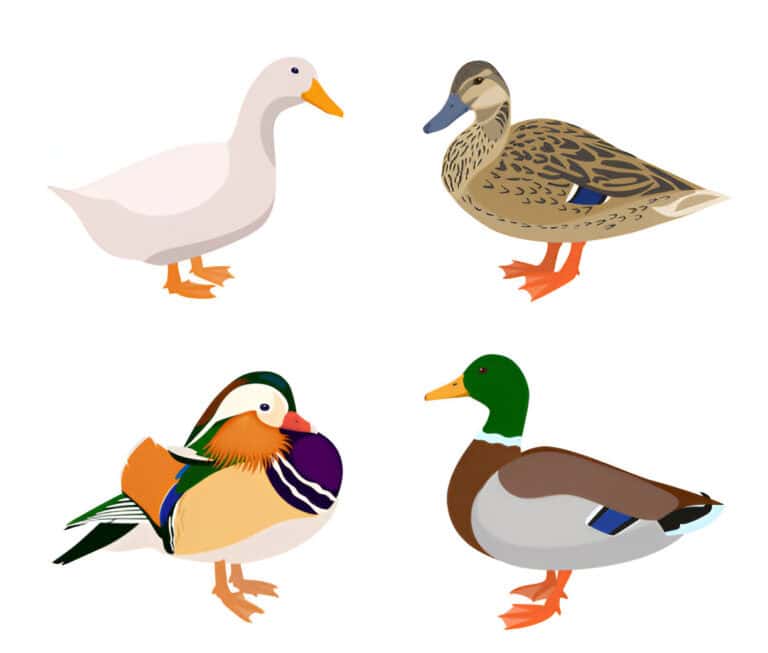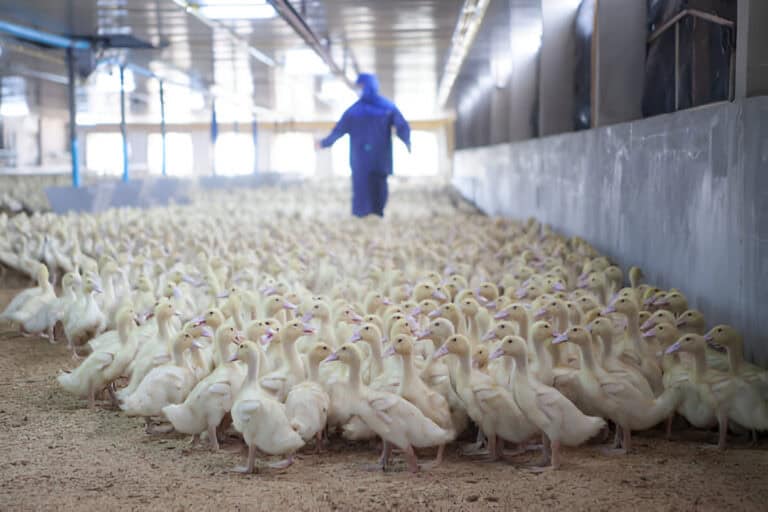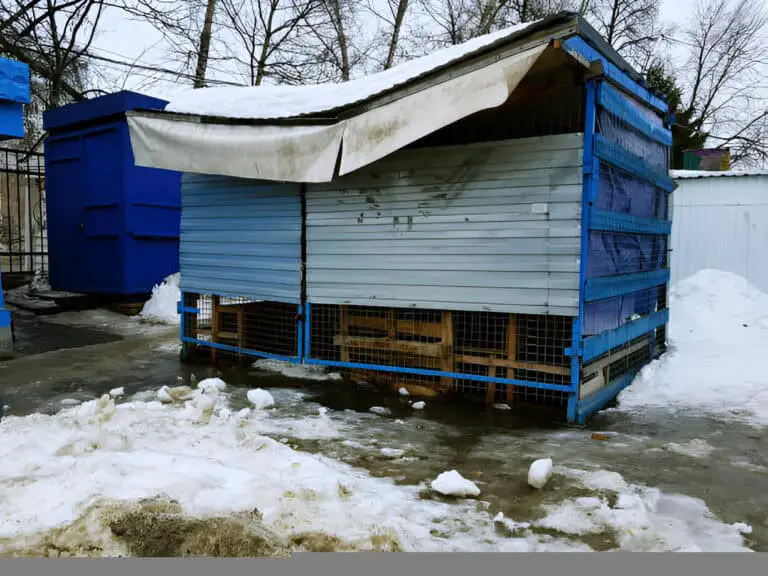Egg Laying Seasons: Why Your Ducks Stop Laying in Winter (and How to Help)
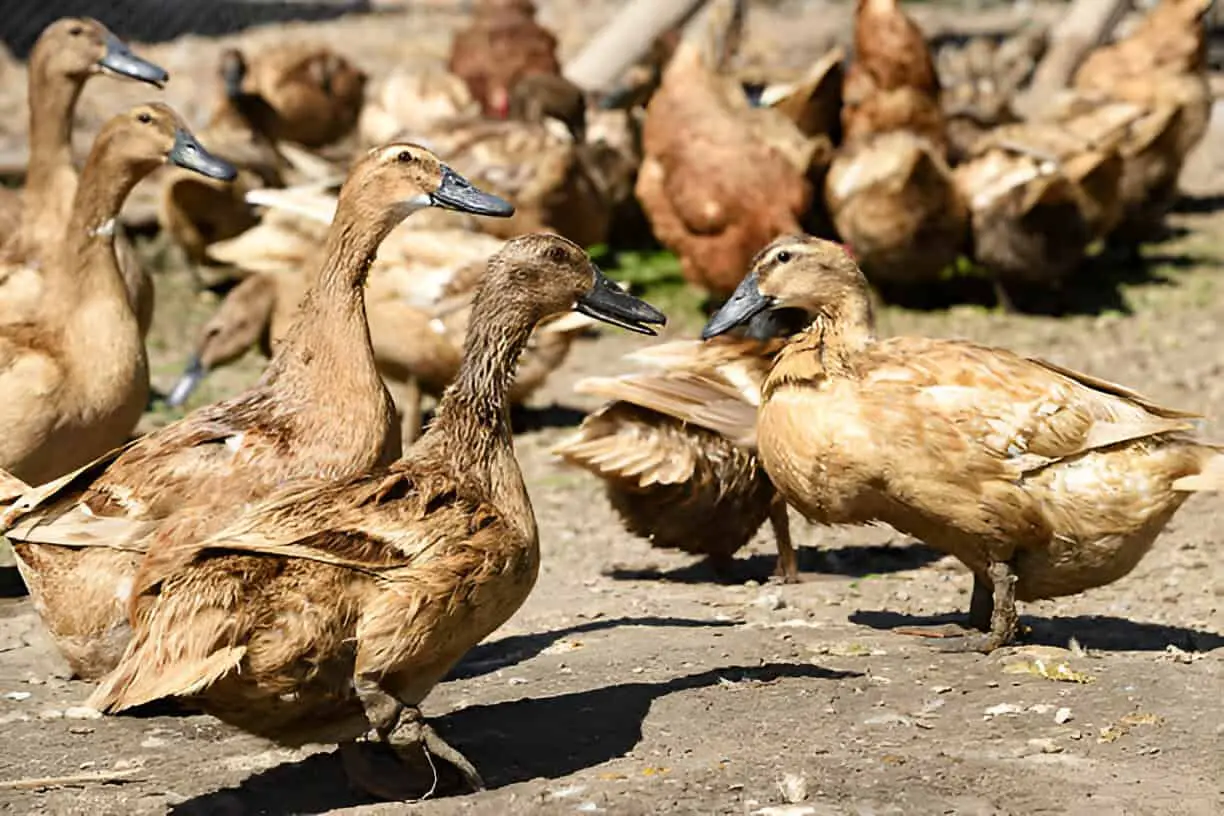
If you’ve ever walked into your duck pen on a frosty morning expecting to gather a clutch of warm, speckled eggs—only to come up empty-handed—you’re not alone. I remember the first winter with my flock like it was yesterday. The mornings were quieter, the nesting boxes stayed oddly clean, and my basket? Bone dry.
At first, I thought something was wrong. Had a predator spooked them? Was I missing some telltale sign of illness? Turns out, I just didn’t speak duck… yet.
Let me walk you through why your feathered ladies slam the brakes on egg-laying when winter rolls around—and what you can do to give them a gentle nudge without rocking nature’s boat.
Why Ducks Don’t Lay in Winter: It’s Not Just the Cold
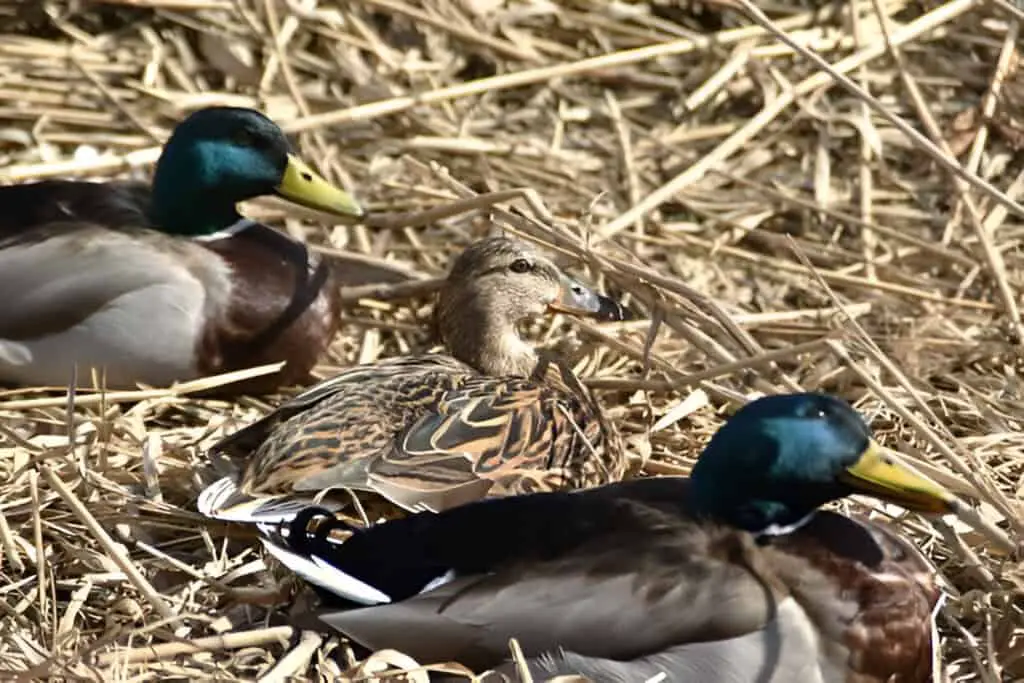
You might think it’s just the chill in the air that puts ducks off their egg game, but that’s only part of the story. Ducks are surprisingly complex when it comes to their laying rhythm. Think of them like tiny, quacking solar panels—they need light and warmth to function at full throttle.
Here’s what really pulls the plug on their productivity:
1. Shorter Daylight Hours
Ducks are photoperiodic creatures, which is just a fancy way of saying their bodies respond to the length of daylight. When the days shrink to under 10 hours of light, their internal clocks start whispering, “Time for a break.”
2. Molting Mayhem
Every fall, most ducks go through a molting period. Feathers fall out in clumps, and all their energy goes toward growing new ones instead of laying eggs. Can you blame them? It’s like asking someone to knit a sweater and run a marathon at the same time.
3. Cold Saps Their Energy
Laying an egg takes effort—and warmth. When ducks need to burn calories just to stay warm, egg production becomes a luxury they can’t afford.
4. Nutrition Dips
Forage gets scarce in winter, and even the best feeds may not pack the punch they need. Without proper protein and calcium, your girls will tap out of the egg-laying game.
| Read on: How to Tell Which Duck Is Laying Eggs in a Mixed Flock |
Cracking the Case: Are They Truly Not Laying?
Before you put your ducks on egg strike probation, make sure they haven’t just picked a new hiding spot. Ducks are quirky. Mine once started laying in a hollow log behind the coop—took me three weeks and a nose full of pine sap to figure it out.
Here’s a checklist to help you rule out stealth egg-laying:
| Sign | What to Look For |
| Hidden nests | Check under bushes, logs, coop corners |
| Broken eggs | Look for yolk stains or shell fragments |
| Egg thieves | Watch for raccoons, rats, or even other ducks |
| Laying signs | Is the vent moist and open? Are pelvic bones 2–3 fingers apart? |
How I Help My Ducks Lay Through Winter (Without Stressing Them Out)
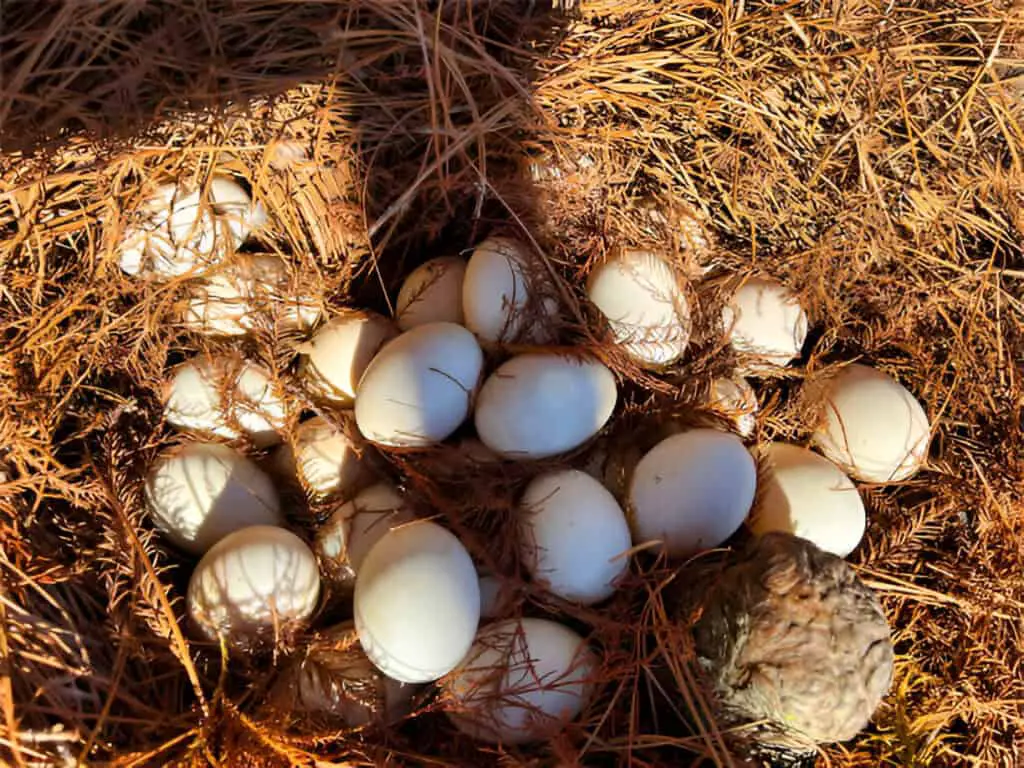
Now, here’s where experience taught me a thing or two. You can encourage your ducks to keep laying in winter—but you have to do it gently. Ducks aren’t egg machines; they’re living, breathing, waddling individuals.
Here’s my go-to strategy:
1. Add Light—but Do It Right
Artificial lighting can trick your ducks’ bodies into thinking it’s still summer. But you need to ease it in. I use a simple timer and low-wattage bulb to extend “daylight” to 14–16 hours total.
💡 My rule of thumb: Add light in the early morning, not evening. That way, they’re never left in sudden darkness, which can stress them out.
2. Buff Up Their Diet
Winter demands more from their bodies, so I tweak their diet.
- Layer feed with at least 16–18% protein
- Crushed oyster shells for calcium (I keep a bowl free-choice)
- Warm mash or soaked pellets in the evening to keep them cozy
Every now and then, I toss them chopped kale or cooked squash. Think of it as a seasonal salad bar.
3. Keep Them Dry and Draft-Free
Nothing kills egg production faster than damp feathers and a frigid breeze. I deep-bed their coop with straw and patch up holes where wind sneaks in. A dry duck is a happy duck.
4. Limit Stress
No new flockmates in winter, no loud noises, and no big changes. Ducks like routine. Disrupt that, and they’ll go on a nesting strike faster than a tired toddler skips dinner.
To Push or Not to Push? The Ethics of Winter Laying
I used to feel guilty nudging my ducks to lay in winter. Shouldn’t they rest? Isn’t this natural?
Here’s what I’ve come to believe: it’s all about balance. If your ducks are young, healthy, and showing no signs of strain, a little winter laying can be perfectly safe. But if they’re older or molting heavily, forcing production can shorten their lifespan and cause issues like egg binding.
Listen to your flock. If they’re fluffing up in the corners and avoiding the nest box, take the hint. Eggs aren’t worth sacrificing their well-being.
FAQs on Ducks’ Egg Laying Seasons
How many eggs should a duck lay in winter?
Depends on the breed and conditions. My Khaki Campbells and Golden 300s give me 3–5 eggs a week, even in January, if I’ve done everything right.
Can I use heat lamps instead of extra light?
You can, but be careful. Heat lamps pose a fire risk and can create uneven temperatures. I prefer thick bedding and wind-blocks over artificial heat.
Do male ducks affect laying?
Not directly. Drakes don’t trigger or stop laying, but too many of them can stress your hens. A stressed duck lays fewer eggs, plain and simple.
Duck Breeds That Lay Better in Winter
Some breeds just have more gas in the tank when the mercury drops. If winter eggs are a big priority for you, consider keeping one of these cold-hardy layers:
| Duck Breed | Winter Laying Ability | Notes |
| Khaki Campbell | Excellent | My personal favorite—reliable and calm |
| Golden 300 Hybrid | Excellent | High production, cold-tolerant |
| Welsh Harlequin | Very Good | Sweet disposition, beautiful birds |
| Indian Runner | Good | Upright and energetic, great layers |
| Pekin | Moderate | Big birds, need more feed |
When Will They Start Laying Again?
Most ducks resume laying egg naturally when the days lengthen—usually around February or March, depending on your location. You’ll start to see signs like:
- Nests being rearranged
- More quacking and activity at dawn
- Their vent becomes moist and open
- Eggs reappearing like a long-lost friend
When that first egg shows up, it’s better than Christmas morning.
| Check out: How Long Do Ducks Sleep at Night? |
Final Thoughts: Eggs Come and Go, but Ducks Are Forever
I’ll admit it—winter eggs are lovely, but they’re not everything. Some of my fondest memories involve trudging out into the snow just to sit with my ducks, watching them waddle through frost-tipped grass and chase snowflakes.
Ducks aren’t factories—they’re family. And sometimes, family needs a break. So if your girls need a rest this winter, let them have it. Offer them good food, safe duck shelter in winter, and gentle encouragement. The eggs will come… and when they do, they’ll taste even better.
TL;DR: Quick Winter Duck Egg Guide
| Issue | Fix |
| Short daylight | Add morning light to total 14–16 hrs |
| Cold temps | Deep bedding, draft-free coop |
| Low nutrition | High-protein feed, oyster shell, greens |
| Molting or age | Give time, avoid pushing them |
| Hidden eggs | Check for new nest spots |
If your ducks have stopped laying this winter, don’t panic. Step back, watch, and adapt. With a little love and a few tweaks, you’ll either help them lay again—or give them the restful pause they deserve.
Either way, you’re doing right by your flock. And that, my friend, is worth more than any dozen eggs.


